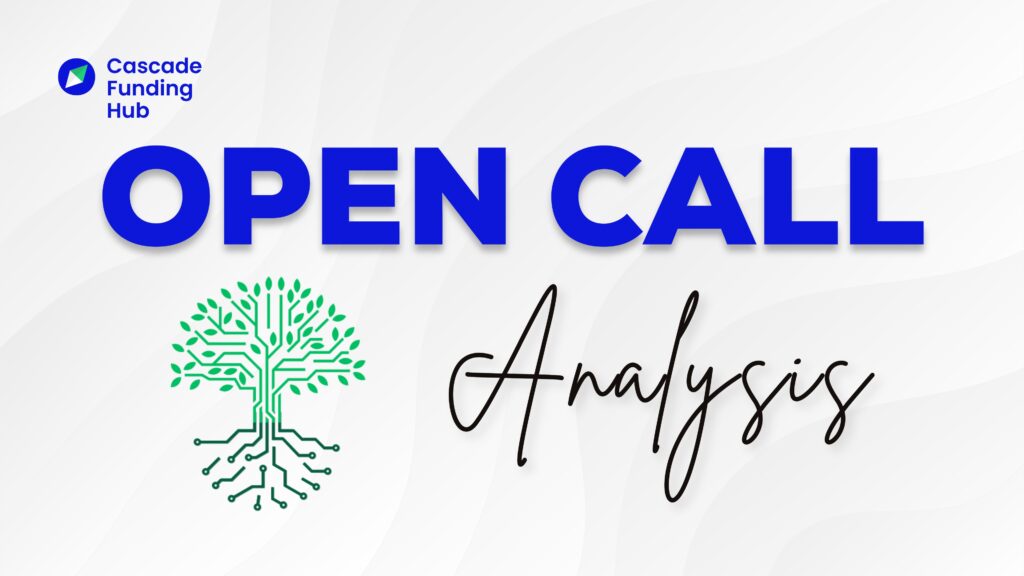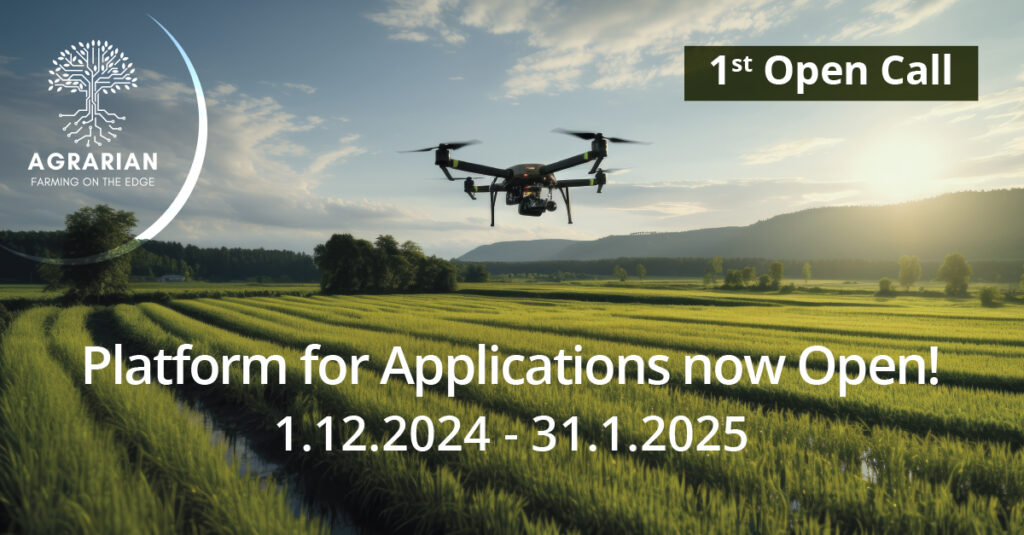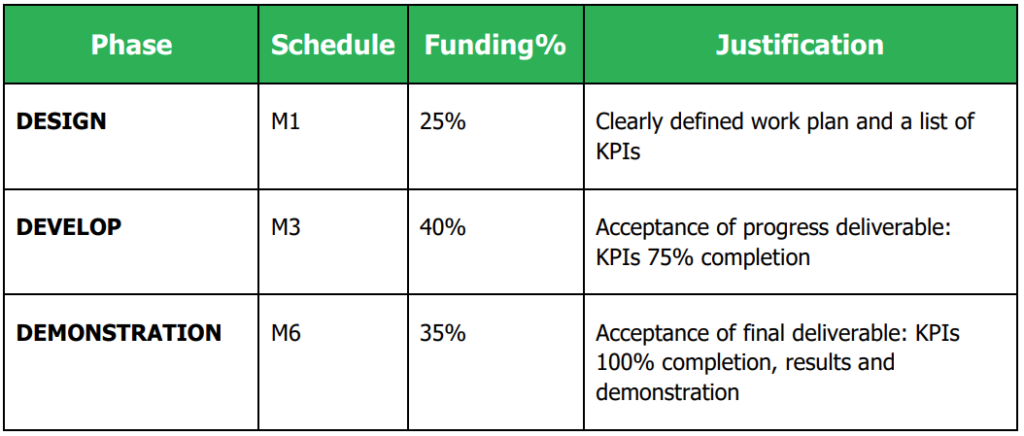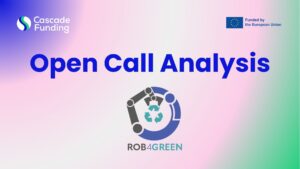The 1st Open Call of the AGRARIAN Project Closes on January 31, 2025. This groundbreaking initiative empowers innovators to revolutionize agriculture with edge computing, AI, and advanced connectivity, offering up to €50,000 per project to tackle challenges in Livestock, Field Crops, and Viticulture.
About AGRARIAN
AGRARIAN is an EU project focused on using cutting-edge technology to improve agriculture by making farming smarter, more efficient, and better connected. AGRARIAN is revolutionising agriculture by creating a cutting-edge platform that combines distributed intelligence, edge computing, and advanced connectivity to meet the unique needs of modern farming. They are achieving their goals by:
- Develop a network architecture merging satellite and terrestrial technologies for seamless connectivity, even in remote areas, using SDN and NFV for scalable communication.
- Provide a flexible software network integrating cloud and in-transit data resources to optimize agricultural applications and workflows.
- Bring AI to the edge of the network (on devices like sensors and CubeSats) for real-time decision-making, data analysis, and model training.
- Create an Agriculture Decision Support System (ADSS) to offer actionable insights for farmers, combining data collection, terrain analysis, and remote sensing.
- Promote innovation by offering financial support for developing and validating agricultural apps, tools, and solutions under the AGRARIAN framework.
AGRARIAN First Open Call
The AGRARIAN project has launched an open call inviting proposals that merge cloud, edge, and mixed technologies to tackle pressing challenges in agriculture. With a focus on Livestock, Field Crops, and Viticulture, this call offers an exciting platform for innovators to test and validate their solutions using AGRARIAN’s cutting-edge infrastructure and datasets.
The AGRARIAN open call targets projects that:
- Innovate with AI and IoT: Solutions should feature AI-driven applications or IoT technologies that address challenges in one of the three agricultural domains- Livestock, Field Crops, or Viticulture.
- Solve practical problems: Proposals must offer tangible benefits for real-world agricultural scenarios.
- Deploy on-edge technologies: solutions should utilise AGRARIAN’s edge-enabled testbeds for local and efficient computing.
- Leverage AGRARIAN resources: Participants can utilise testbeds and datasets provided by the project for testing and evaluation.
What does AGRARIAN offer
Apart from the grant, AGRARIAN provides four specialised testbeds available to support innovative proposals:
- GEO satellite communications with edge capabilities: Simulates geostationary satellite systems with edge computing onboard or at ground gateways
- NGSO satellite communications: Emulates low Earth orbit satellite constellations with IoT-ready edge computing capabilities
- Satellite Edge AI compute emulation: Test AI models on hardware that mimics CubeSat edge platforms, ideal for performance evaluation.
- SEED-5G platform: Supports space-edge AI applications through an NB-IoT platform for non-terrestrial networks.
In addition to the testbeds, AGRARIAN provides access to an extensive repository of agricultural datasets, including:
- Thermal & multispectral earth observation data (LANDSAT)
- Historical weather and land elevation data
- Detailed vineyard information (26,000 hectares)
- Over 70 TB of soil moisture content data
Additional information on the testbeds and datasets can be found in the “Technical Annex”
Open Call 1 in numbers
8
Potential Projects
€400,000
Funding Available
€50,000
Per entity
What activities can be funded?
The AGRARIAN open call encourages forward-thinking project proposals that align with its governance vision and research priorities. Proposals should not only leverage AGRARIAN’s advanced platform but also demonstrate the tangible benefits of their solutions with measurable Key Performance Indicators (KPIs).
Proposals should evaluate how the AGRARIAN platform enhances its services or products, detailing metrics such as operational optimisation, energy efficiency, response time, accuracy, and data security. The following types of applications/solutions (but not limited to) are expected to be funded:
- Innovative agricultural tools: Cutting-edge technologies that improve farming efficiency, reduce costs, and minimise environmental impact are at the forefront. Examples include precision farming systems, unmanned ground or aerial vehicles or IoT devices and sensors tailored for agricultural applications.
- Sustainable farming solutions: Proposals that promote sustainable and regenerative agricultural practices are highly encouraged. These should aim to enhance biodiversity, improve soil health and water conservation, reduce the carbon footprint of farming and strengthen ecosystem resilience.
- Climate resilience and adaptation: Technologies that help farmers adapt to and mitigate the impacts of climate change include solutions for climate-resilient crops, innovative irrigation systems, and weather prediction tools.
- Digital solutions and smart farming: Digital transformation in agriculture is another core focus. Projects should aim to develop smart farming platforms and mobile apps, create data analytics tools to enhance decision-making, promote good farming practices and efficient resource management and boost productivity and profitability through actionable insights.
Who can apply?
Eligible participants include a single beneficiary: a startup, SMEs, universities, research centres, NGO, or foundation. In addition, these entities must be located:
- On one of the member states of the European Union (EU), including their outermost regions
- On a Horizon Europe-associated country: according to the updated list published by the EC on the submission date of the proposal
Other eligibility criteria include:
- The applicant must have a valid VAT number
- Existing consortium members of the AGRAGRIAN project and their affiliated entities are not eligible
- The proposal must be delivered before the defined deadline
- Proposals shall only ask for funding for that part of the work that is not yet accomplished and will be carried out after having been selected for funding
How to apply?
All proposals will be submitted electronically via an Open Call 1 management tool, developed by AGRARIAN.
The submission packages include:
- A 10-page proposal
- Annex I (max 2 pages) including details of the organisation and team
- Annex II Declaration of Honor and Privacy Policy
All documents must be submitted in PDF format. Proposal templates can be found here.
Important Dates
Submission Deadline: 31st of January 2025
Evaluation Process
The evaluation process is based on a four-step approach:
- Eligibility check
- Alignment Evaluation: At this stage, technical partners will evaluate the feasibility of implementing the proposals for their selected testbed or dataset.
- Experts’ remote evaluation: Two independent evaluators with experience in farming applications, satellite, edge, cloud technologies, technology and business development will review each proposal scoring them based on different evaluation criteria: Technical Excellence, Impact and Implementation. For each criterion, each evaluator will score the proposal from 0 to 5. To be successful, the proposal will need a threshold of 3 in each category and an overall threshold of 10.
- Normalisation of the results: To avoid evaluators’ biases and distortions a normalisation method will be employed, ensuring a more balanced distribution of scores.
All applicants will receive an Evaluation Summary Report (ESR) with their decision outcome.
Payment and Funding
Selected partners of Open Call #1 will be funded according to a lump sum approach receiving up to €50,000. The payment distribution depends on the completion of KPIs as follows:
Final thoughts
This call presents a significant opportunity for innovators and tech developers in the agriculture sector to deploy and validate their solutions using advanced infrastructure. By focusing on edge computing, real-world problem-solving, and measurable impacts, participants can contribute to transforming agricultural practices while gaining valuable insights and practical experience.






